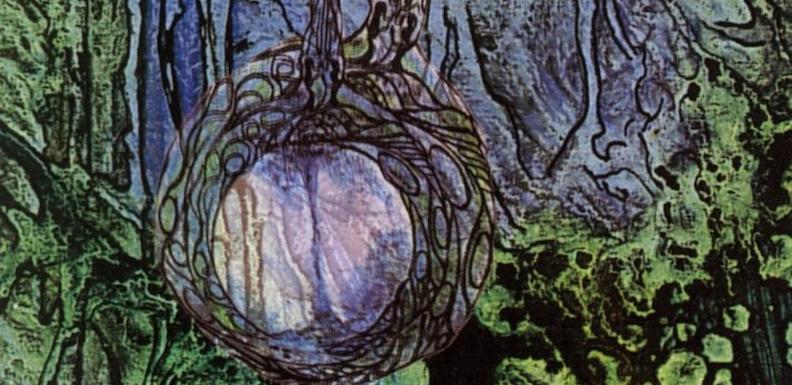

Edward Ka-Spel’s brilliance with The Legendary Pink Dots is to introduce us to isolated characters and then immerse us in their world-view through expansive and mysterious soundscapes. He begins with the most restricted, infinitesimal point of consciousness and then slowly expands it outward towards a state of ‘cosmic consciousness’ (to use the phrase of 1960s psychonauts). Musically, he often follows this template of expansion, with simple melody lines repeating and layering in increased complexity of texture. Much of the LPD’s music is an undertaking to help the listener (and perhaps composer) escape his/her own head. Lyrical phrases, musical motifs, album titles and themes recur across decades, but tonal shifts between albums are slow and subtle. Hopefully, The Legendary Dots Project, like the Residents and Sparks projects before, will provide the keen reader and listener with a giddy entry-point into the Legendary Pink Dots’ musical world. Fulfil the prophecy!
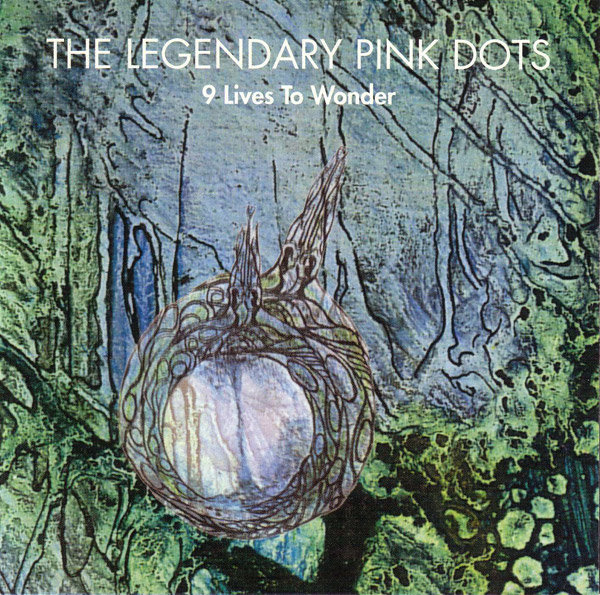
Nine Lives to Wonder (1994)
Adam: Nine Lives to Wonder is an opium dream of an album. A shadow cast upon the wall. A message in a bottle hanging suspended in mid-air. It opens up a space of yearning for impossible pasts and unimaginable futures. For that reason it is an album that I must review tonight before the election results of December 12th 2019 are all announced, even while the exit polls spell a huge majority for a far-right Tory government. I am writing from within this weird liminal Schrödinger’s box of a space that, come the early hours of the morning, will be closed and bolted, welded shut, sealed off from all electoral hope on this blinkered, mean little island, broken on the wheel of post-colonial pride. We are a long way from The Tower (1984) – a full decade in fact – and yet not very far away from it at all…
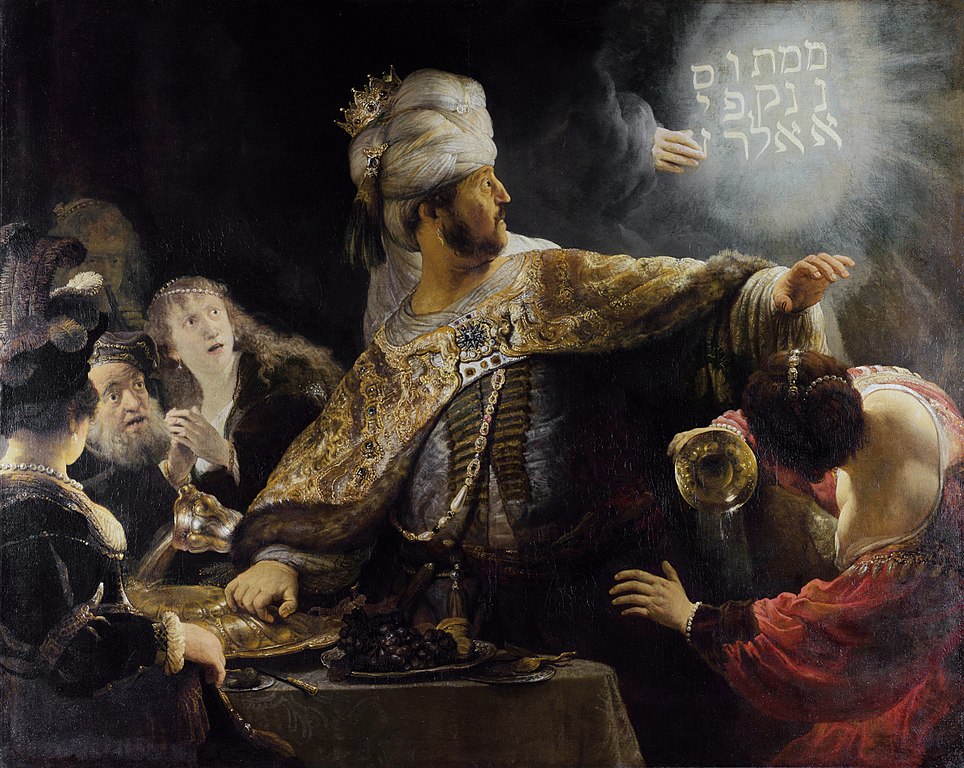
Track 1

‘Madame Guillotine‘ sidles in
a shit-eating grin,
corpuscles sprouting from her skin.
A backing band of clockwork jazz
spaffing razzmatazz over a
subaquatic bass.
Van Hoorn’s parping sax an elegy
for the postwar dream,
a scream for the socialist prince
without a head, who’s chopped-
chicken-liver dead.
A mordant and mechanical dirge
for the garden we have despoiled
and the bed the Tories shat in
as they routed the reds
and rounded up the gypsies
describing “picaninnies
with watermelon smiles”
as the crowd sat in files
and kept on knitting.
Track 2
‘On Another Shore‘ we drift unsure
whether the stereo hiss is
water or sand, the listener
untethered to land, the singer
tied to a paramour for whom
he has waited just a lifetime.
A flute lilts and wanes
to percussive refrains and
tidal washes of fuzzy
ambient electro-acoustic
eschatologic drones.
Track 3
‘Softly Softly‘ strum a whimsical ditty
of transcending despair as you
comb your hair –
like Frosty finally broken
free from his fridge
to have a ’90s campfire
sing-a-long, though
the tune’s not long
at only
02:06!
Track 4
‘Crumbs on the Carpet‘:
An olfactory frenzy with the
fine fat flies long
melted in the marmalade.

Like a gastronomic ‘On the Boards‘
but with monkey brains and
donkey doos. Indiana Jones
in The Temple of Doom
and all its orientalist handmaidens
burping on command.
A slavering Švankmajerian feast
of farting horns and gustatory
rumbles, tunes squeezed out
upon electric devices, a tympani
and possibly a broken lyre
(although I think that’s actually on the next track…)
Track 5
A burble of brown and brackish water
and ‘Hotel Z‘ begins with a guitar
so very far from Hotel California –
it gloams in circles of no escape
the melody locked, the narrator
who bought and sold the world
is here to stay.
Ka-Spel mourns and moans and
lilts and lisps at a lost love who
slowly fades away
upon another shore.
And the music groans
like the hull of a ship.
But the dirge upon strings
and finger-picked guitar
is rudely interrupted by
a heraldic call to arms!
An electronic whistle
from the frozen lips of
Princess Coldheart‘s
suitors.
Residential funereal organ
heralding the end of
British democracy and
the BBC, the sounds
shiver in the hold,
sickened by the
theremin-throated
piratical ghosts
of Christmas Past.

Track 6
‘Oasis Malade‘ summons
the sickness of a pneumonic
toddler eviscerated in
the tabloid media.
Hospital trolley in
Eraserhead sounds scandal!
Dystopian thrumming frames
a curious story of a visitation
from an old friend, swiping
with a fan, “any passing
disease-ridden mosquito”
then leaves
abruptly!

Track 7
‘A Crack In Melancholy Time‘
and Extinction Rebellion drapes
a banner from a Biblical museum
that’s a pint-sized Noah’s ark, saying
“We need a better plan than this →”
Fracking suspended as a sideline
as a greenwash of electronic burbles
crumbles COP25 into chaos.
“And we hear the children calling.
We agree that it’s appalling,
but it’s best to keep on stalling”
All the world leaders sing~
before their heads are found
cooked in the oven.
The computer overloads,
failing to process
NIN-style electronica.
The music whistles
down into
the void.
Track 8
‘Siren‘ Sheba alights upon the ears
like a rhapsodic spinning top
lulling as she twirls, weaving
a repetitious melody.
Ka-Spel sings in canon
multi-tracking his own voice
in sinister-soothing heteroglossia
as the Eastern glam of Kiss Me Cure
resolves into the gloomy goth of Pornography:
“I could DIIIIIIIIIEEEEEEEE…”
A pensive bridge groans and thrums and drones into~
Track 9
‘The Angel Trail‘, an angelic lullaby of
Hawaiian metal machine music.
Ka-Spel reassures:
“There’s nothing on this planet that can touch you”.
He murmurs sweet nothings
into the auditory ether.
//And fade out//
Track 10
‘Nine Shades to the Circle‘ and
three synthesizers steam
in Hell.
This could even be
a ‘Premonition‘
until the chuntering
bass and trippy drums
bring us down
to Earth.
Mellifluous gases
seems to seep
from the speakers
as the speaker Ka-Spel
narrates a Groundhog Day of
Sliding Doors and
missed opportunities.
A tone poem played
across the hallowed halls
of a robotics factory
or a Tibetan temple
or a cramped interior
of a frozen train carriage.
Fingers pick guitar
as Ka-Spel gasps and
noises sputter
anticipating
The Gethsemane Option.
Ultimately
it’s a story
you have to sink into.

Track 11
‘A Terra Firma Welcome‘
firmly welcomes without terror.
An alien mechanochemically
melancholically dissected
to Floydian guitar.
A retelling of ‘The Silverman‘,
perhaps–
that unfortunate
space cadet
cut up
for
our
sins.
A sad and simple song
that ends with
a terrifying coda
of ramped up
mechanical music boxes
and twitchy psychedelia
called ‘Find a Bin
to Put It In’!
Bonus Track
#12 a bonus for Flesh Eating Ants
‘The Uncanny 18th Shade‘ –
though more liminal and abject
than uncanny.
Small roaring silences
like ghost confessionals
recorded by the
BBC Radiophonic.
Snatches of the preceding album
– mainly ‘Nine Shades to the Circle’ –
with Ka-Spel dying
in ghoulishly humorous circumstances:
Tied to a train track
in a Victorian melodrama
waiting forever for
the train to crush him
“no consummation
no conclusion”…
like The Residents‘
The Ghost of Hope
forever delayed
“just the waiting
just the promise…
sincere…
never quite delivered”.
CONFESSION: DURING WRITING THE PRECEDING I FEEL ASLEEP AND BROKE THE IMPASSE. FOR MY SINS BREXIT WILL NOW BE DELIVERED. GOD SAVE US ALL.
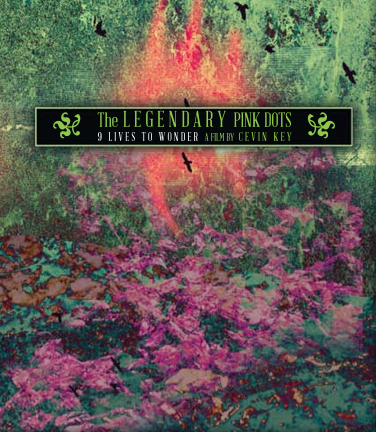
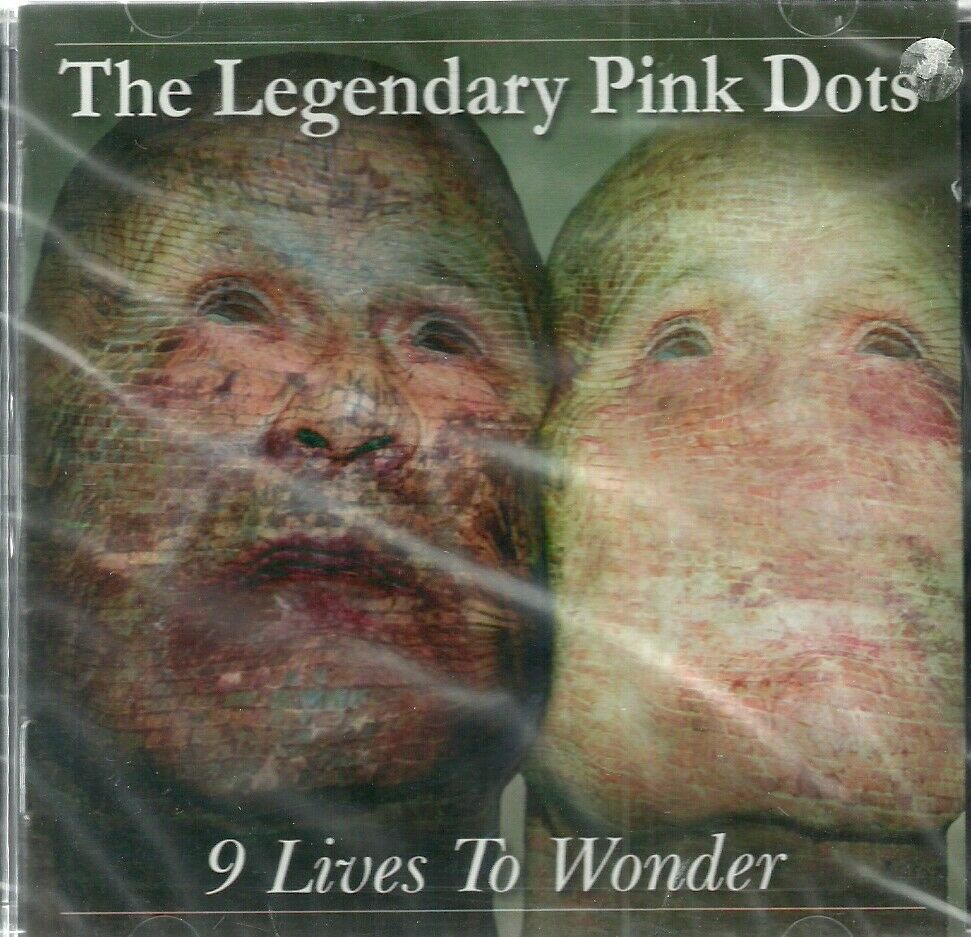
Tom: Whereas, I began writing my piece in mid-September while on the second leg of my honeymoon with Rachel. Yet, I have concluded my reflections on the album today – which is, as I write, Wednesday 18 December 2019. A lot has happened; there’s steady if always difficult progress on a PhD and Blighty hasn’t exactly covered itself in glory in voting in large enough numbers to grant a congenital liar and would-be Berlusconi and “Britain Trump” a majority of 80 seats.
Firstly, back to September… Sitting by a swimming pool in the walled town of Monteriggioni in Tuscany, Italy – which has cultural resonances reaching from Dante Aligheri’s narrative poem The Divine Comedy (1320) to action-adventure video game Assassin’s Creed II (2009) – I pressed play to be greeted by the loping, 1980s-leftover slap bass of ‘Madame Guillotine’. It invokes nouns like blasphemy and mercenary. There is sudden, fear-driven violence: “They lynched him”. There is a problematizing of the Rousseau-inspired notion of ‘noble savages’; troublingly associated with the acts of rounding-up and lynching. There’s a strange dog woofing rhythmic slicing, as through necks. There are repetitions of “We all fall down”, starkly conveying perceived nursery rhyme truths about France’s Revolution of 1789. It makes me think, in December, that there is some core aversion to upheaval in Britain; people understandably opting for a quiet life, but also perversely giving carte blanche to charlatans.
‘On Another Shore’ provides a Mediterranean calm after the storm. Yet there are “bleeding hands and knees”. The “good ship sails away forever”, as delicate flute embellishes the gently swaying canvas provided by the locomotive rhythm. “All these years I waited”, “forever”, “In the end” and “Was never meant to be”: Ka-Spel provides copious time-centric adverbials that in this December carry a candid Left melancholy. Amid these dramatic invocations of clock time, there’s an ethical, dreamed escape: to idealised desert islands or more peopled climes. To escape the bloodied Other who reminds the speaker of human horrors.

Next up, ‘Softly Softly’ and we are indeed in accessible, cop show terrain in comparison to the previous expansive experiments. There’s earnest guitar chordage and a hitherto unique (?) sound in the LPD story, a theremin. There’s discussion of freedom from quicksand and the branch of this tree. It vaguely evokes the novel I finished in earlier September, Sarah Moss’s Ghost Wall (2018), set in late twentieth century rural Northumberland which reveals dark past and present cultural currents: as Sarah Crown argues, it conveys ‘the violence of a life lived in close touch with nature.’ There are soft-shoe shuffles and worldly, twentieth century lexemes like “garbage” and “anorak”, linking with the sensual, everyday sense of Ghost Wall’s Molly, who nicks off to the shop to supplement the expedition’s planned Iron Age diet with supermarket goodies. As with Ghost Wall, the album seems infused both with the feeling of primal, recurring human violence and also pleasurably illicit respites and escapes from it. Nature, whether human or not, is to be heeded, but also carefully defined and not worshipped or re-enacted. This is a wonderfully ambivalent song, covering a rich acreage just over two minutes of pastoral psychedelia.
‘Crumbs on the Carpet’ brings another of those skittering, grid-like rhythms so prevalent in the late-80s, early-90s Dots oeuvre. It has a vaguely scatalogical refrain of various global cuisines and “donkey dos”. The declarative slogan “We are what we eat” is repeated several times, reflecting the 1990s ‘lifestyle’ turn, when there was an increasing linkage of diet with ethics. It is difficult to tell how serious Ka-Spel is here, but my gut instinct is that this grotesquerie supports a vegetarian impulse. It is all a bit bludgeoning and like ‘Hellsville’ in its rampant catchiness.
‘Hotel Z’ returns to the gravely, sedately queasy style we know so well. “Overdose… Comatose…” There’s a distant and inexorable quality furthered by “There’s no escape”. A gate is found but it’s locked and it is clear the speaker hasn’t got the crucial key. This is another LPD song set in a hotel but this one patently associates it with suicidal impulses and acts. Around 3 minutes, there’s a curious, momentary synth-led sea shanty, then harmonium wheezes and actual struggling breaths. And then EK-S returns with “Dying eyes… Sympathise [pronounced Sympath-eyes]…” Distant horns and gravely circling piano persist. The prize is illusory, the pun probably isn’t. I like this better than the previous track, and the core melody is sound, but for me it isn’t quite top drawer Dots – it lacks a bit of edge, as if narcotic numbed.
 ‘Oasis Malade’ is a step towards the sort of spoken word tracks prominent in the LPD live gig I saw over five years ago. This is a pleasingly offbeat short tale of Tanith, an ex-partner of the Speaker, who sports a “colonial helmet”, plus has a “customary Burmese fan raised in her right hand ready to swipe at any disease-ridden mosquitos.” She just drops by, after leaving him so suddenly. It conveys a droll absurdity, delivered in winning deadpan: “She’d been in Belgium, she said / It took her years to find out there were no pyramids in Belgium…” After his asking why she left him, she asks him for tea in a paper cup and leaves. Non sequitur upon non sequitur and bathos upon bathos amounts to copious arcane pleasure.
‘Oasis Malade’ is a step towards the sort of spoken word tracks prominent in the LPD live gig I saw over five years ago. This is a pleasingly offbeat short tale of Tanith, an ex-partner of the Speaker, who sports a “colonial helmet”, plus has a “customary Burmese fan raised in her right hand ready to swipe at any disease-ridden mosquitos.” She just drops by, after leaving him so suddenly. It conveys a droll absurdity, delivered in winning deadpan: “She’d been in Belgium, she said / It took her years to find out there were no pyramids in Belgium…” After his asking why she left him, she asks him for tea in a paper cup and leaves. Non sequitur upon non sequitur and bathos upon bathos amounts to copious arcane pleasure.
Next, ‘A Crack in Melancholy Time’ is perplexing, electric rhythmed space rock that tells of horrendous violence such as the stark image of blood on the muzzle he’s wearing. “History is repeating”. There isn’t really a ‘chorus’ but there certainly are repeated anguished cries of “Count me out! Count me out!” Imagery of heads in ovens evokes an atmosphere of atrocity within this more in-your-face expansion of ‘Softly Softly’ with its history of repetitive human brutality.
‘Siren/The Angel Trail’ is one of the album’s centrepieces. ‘Siren’ opens with the former’s woozy seafaring escapade: “Come sail to me it’s been so long… […] It’s been so lonesome I could DIE…!” It’s like an existential blues lament converted into a yearning psychedelic shanty. Then, an interregnum, which opens with disparate shards but offers more unified signification via the entrance of a fatalistic Central or Eastern Europe sounding violin refrain. This becomes ‘The Angel Trail’ with a skittering electronic and drum abetted rhythm: even this threatened release and murmured solace doesn’t entirely convince: “hang on to my hand, I’ll protect you…” / “everything will turn out fine…” This suggests the power of religious or other totalising ideologies and metanarratives – “Safe inside our tapestry”. Yet the coldness of Ka-Spel’s delivery suggests it is too easy or simple a path to take to follow monotheistic or Manichean views. Universalism is at stake. In late September, I had this tune on while walking to a supermarket on a Sunday afternoon near Newcastle’s Haymarket to get some provisions in for us, post-holiday. The profound questioning of the song seemed in stark counterpoint to the worldly materialist focus of the lives around me, some of which will be infused with deep romanticism whether linked to Christianity, Islam, socialism, nationalism, buccaneering capitalism or liberalism, but most of which do not consciously think of such things, especially not when led by the belly. But who knows what goes on in people’s minds? I certainly saw a Daily Mail or two being purchased by older people – suggesting some deferment to this country’s dominant superstructure or is it just deep, quiet patriotism, selectively identifying with its own imagined community?
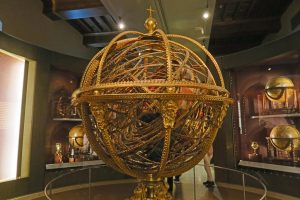
On our holiday, our main destination Monteriggioni (like Siena, which we also stayed in and revisited via bus) was on the Via Francigena, a “Pilgrim’s Trail” of the Middle Ages stretching from Canterbury to Rome. This was very tourist-friendly, but there was also quiet seclusion in staying by a swimming pool in the hotel – few of the guests seemed to stay more than one night. In our visit we had wonderful food and wine, while seeing the perennial reminders of Europe’s warlike pasts in an armour museum. On the trains there and back, we saw Amsterdam, Basel, Frankfurt: all interesting variants of contemporary neoliberal capitalism – with its complex nexus of inequality, “choice”, cosmopolitanism, banking and protean connoisseurship. Basel had a pub called Mr. Pickwick. Amsterdam was a cornucopia of libertarian choice from across the globe – totally lacking in piety, like the Hanseatic League praised by Jonathan Meades. In Florence, we took in the fascinating Galileo Museum, though I also misled Rachel on a wild goose walk that I admit was foolhardy! Our hotel in Frankfurt seemed full of businesspeople checking the financial newspapers and television coverage. Its homelessness seemed familiar to anyone resident in a UK city. The striking thought arose that Western Europe is akin to the Britain of Hobbes, Locke and Thatcher – with key linking figures like the Dutch Bernard de Mandeville, responsible for the influential market capitalist ‘Fable of the Bees’ (1714). Yet, the ease, comfort and civility of the transnational train travel – through the Alps, Milan, Florence – suggested that something in the European system works better. And the landscapes we moved through were fascinating – the Italian Alpine region looks wonderful, a city like Cologne is a must for a future visit.
The additional centrepiece ‘9 Shades to the Circle’ begins, all ambient. There’s a flange-like effect. Then, drums enter. Followed by a straightforward, minor-key acoustic guitar riff, which announces semi-spoken word lyrics: “Like any other day… I heard the bell and grabbed my coat. Snatched a coffee and nearly choked and semi-cartwheeled head first in the rain… I knew I had to make that train… My life depended on that train…” This core, bare everyday narrative is repeated periodically throughout the song, like a stark Kafkaesque mutation of Paul McCartney’s section in The Beatles’ ‘A Day in the Life’ (1967). Surrealism and horror: a giant Panda and evil Santa; being pointed at and laughed at.
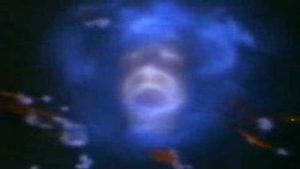
“Pushing… Pushing… They’re pushing…” punctuated by deft drumming. “Stop pushing! Don’t push meeeeeee…….” This is followed by a glistening, very early 1990s synth figure. This aural signifier seems in my memory to offer a countercultural variant on the mood of Strange But True? (ITV, 1993-97), a Michael Aspel-helmed paranormal documentary series I remember watching when I first got a TV in my room in 1995 as part of an evening’s ITV viewing. Aspel’s show featured ‘reconstructions’ that I may well find laughable if watched again today. I was in my second year of comprehensive school. ITV managed to capture my early-teens self, getting me to ritualistically tune in during Autumn 1995: Coronation Street (7:30pm), The Bill (8:00pm), Strange But True? (8:30pm) and the Tom Baker and Sue Johnston-vehicle Medics (9:00pm). While I don’t think they all blurred into one in quite the way Raymond Williams identified in his concept of televisual ‘flow’ (1975), this schedule did form a totality I found enjoyable and a rare time that I have stuck with a channel’s evening-night schedules uninterrupted – in this case, for 150 minutes! I didn’t watch the news following at 10pm, or the likes of James Whale or “Doctor” DJ Neil Fox; the four-programme grid was enough to give me comfort amid often hard times.
“Like any other day and semi-cartwheeled… Cartwheeled… Head first in the rain… I knew I had to make that train. My life depended on that train…” Stopped by a junkie for change who “Pulled a knife. Cut. CUT!” This does indeed evoke an updating of Victorian Melodrama which might even have found its way into some of the ITV programmes I mention above – plus, later, A Touch of Frost, a neglected influencer of fearful “Broken Britain” images and discourses. “Like any other day…” – the repetition of the fever dream continues. The person he reaches out for melts… The fear of breaking rituals, schedules, not making appointments or trains, as these things provide meaning and succour.
‘A Terra Firma Welcome’ is a sombre and plangent guitar-led song, unfurling with a sense of terminal deferment. “Tried expensive hypnotherapy […] Debates for a year […] Quoted precedents and dissidents, Johnny joined the space police…” There’s a notably consistent elision of any pronouns and desperate engagements with health, politics, law and order not doing much good. It’s all depersonalised and top-down. “They decided on a terra firma welcome. Our guest was now deceased. Rest in peace.” Pronouns have established themselves. There’s distant elegiac violin. Then the whole edifice deftly fades. Then, after a silence, a jumbled, chaotic fragment with high-pitched, intense gobbledegook: which I can only transcribe as “Folla tha rings a what’s a ting!”
‘The Uncanny 18th Shade’ introduces more clanging ambience while some of the lyrics from ‘9 Shades to the Circle’ return, but added to. “But the rails are on board as the 9.30 express […] It’ll never arrive…” This is almost a case of avant-blues or country: “this sorrowful heart of mine…” It also bears some rela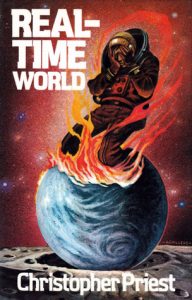 tion to the genre of turntablism – see the enervating, sad nostalgia of the new People Like Us album, The Mirror – with a distant piano sample. The phrase “Repeat the way…” is itself repeated.
tion to the genre of turntablism – see the enervating, sad nostalgia of the new People Like Us album, The Mirror – with a distant piano sample. The phrase “Repeat the way…” is itself repeated.
The clanging, syncopated rhythm returns. “Finally, I cut the cord…” Christopher Priest’s macabre short-story ‘The Head and the Hand’ (1972; first collected in Real-Time World, 1974) about a performer who is subject to onstage limb amputations and becomes an object of freak show-like agog fascination from prurient audiences. Todd, an increasingly messianic exhibitionist, has the money and hangers-on to carry on: paying for extensive, expensive surgery to graft himself back together each time. Until he goes to what is a gravely inevitable ultimate extreme… Priest implicitly associates the ensuing audience and public riot with the transgressive politics of Paris in May 1968.
“There’s nothing we can’t achieve […] I’ll protect you…” This end-track constitutes a haphazard sprawling canvass of sections, swirling in and out of perception. It closes evocatively with what sounds like an old 78 looped and dotted, clearly more James Kirby than Stereolab. The album’s ending reflects a terminal melancholy with a toe in the sublime.
Johnson’s right-populist bravado is nothing new; away from obvious comparisons to an impeachment-threatened US President, the swaggering strongman has its roots in European totalitarianism or near-totalitarianism. In August on BBC Four, Jonathan Meades ended his richly digressive combination of lecture and music-hall turn concerning Franco’s dictatorship in Spain thus: “His ideal of his country was based in the past. That was where Spain’s future lay.” These words, spoken against the stark statue of a bull, seemed a timely intimation of Johnson’s victory, initiated as it was via Dominic Cummings’s bellicose tactics and rhetoric. If it was a load of bull – and time will tell on that count – the British public fell for it.
The Conservatives are hoping that this election result draws a veil over the ‘Brexit’ controversy; that this will allow Johnson, abetted by a complicit press to quietly do complex trade deals with the EU, the US, India and China that potentially disrupt and damage people’s lives. This is to be hushed up, or reduced to the self-pleasuring arcana of Tory dreams. The duplicitous mantra will be that Brexit Britain is ‘One Nation’, a sort of ‘consensual’ pose of socially cementing people together, as if the last nine years and seven months had never happened. The faux-unifying words will cloak likely out-grouping of political opponents.
If it’s ‘One Nation’ without care for the poor or disabled or ill, or without space for meaningful dissent from the Spectator-Telegraph-Tory Party consensus, then it’s no nation at all. Those of us who want to preserve the planet and equable ways of sharing life on it are not going away and will not be silenced. We have a critical mass among the young and urban electorate, but the elderly and peripheral hold sway, some of whom may be unpersuadable. The left critiques rationally, but it needs to better streamline its message and tell emotionally convincing stories and myths that can challenge and eventually supplant ‘George and the Dragon’ and ‘Dunkirk’. ‘David and Goliath’ seems an apt summary, but Oscar Wilde’s ‘The Selfish Giant’ may be a starting point. We have a responsibility not to give up, however appalling the odds.
Adam: I full-heartedly echo Tom’s message, though I can’t help but feel he has, towards the end here, drifted from reviewing Nine Lives to Wonder… And yet, it really is a drifty, wandering kind of album. It’s an album of many intriguing and seductive moments, but one in which, as a listener, you feel you pull back a veil only to be confronted with another veil. An album in which many tracks feel unresolved or – when they are resolved – are done so with a sense of bathos and the ironically provisional.
In politics, as in life, quick fixes rarely stay fixed for long, as we transition next to From Here You’ll Watch the World Go By (1995).
